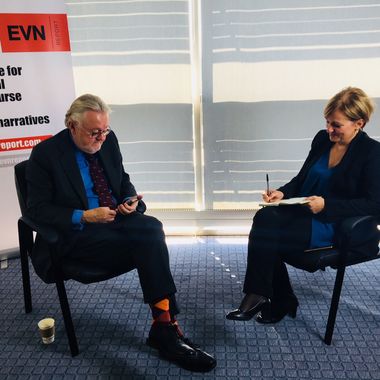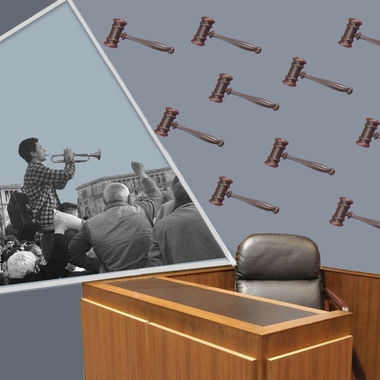Learn more about Transitional Justice and its Implications for Armenia

Also read
Armenia Gets Serious About Reforms: Making Sense Out of Vetting
By Nerses Kopalyan
As an instrument of transitional justice, vetting is designed to “cleanse” state institutions that are tainted by systemic corruption, nepotism, and incompetence. Vetting of personnel is the first step toward the broader goal of institutional reform, writes Dr. Nerses Kopalyan.
Transitional Justice: What to do About the Past?
In the year following the Velvet Revolution, several high-profile corruption and abuse of power cases have been revealed. Lingering questions remain: Can the current judicial system properly deal with these cases? Over the last several months, EVN Report has spoken with experts, academics and lawmakers about different models, possible applications and tools of transitional justice.
Why the Corrupt are Terrified of Transitional Justice
By Nerses Kopalyan
Formulating the compatibility of transitional justice with Armenia's laws and constitutional statutes shouldn't be problematic, writes Nerses Kopalyan. However, the Pashinyan government, must go out of its way to make certain that the formation of any element of the instruments of transitional justice are fundamentally impartial, profoundly non-politicized, and unequivocally objective.
Listen to our pdcasts of Transitional Justice
Author of EVN Report's White Paper "Transitional Justice Agenda for the Republic of Armenia," Dr. Nerses Kopalyan speaks about the imperative of transitional justice to help heal Armenian society and restore trust and faith in institutions.
Transitional justice involves four components - justice, truth, reparations and institutional reforms. Dr. Nadia Bernaz looks at the past and current examples of transitional justice processes that have tried to deal with corporate responsibility and the human rights impact of corruption and white collar crimes.
During the transitional justice symposium in Yerevan, Marieke Wierda, Esq. elaborated on some of the reasons that countries have embarked on transitional justice processes and the fact that transitional justice should seek to reconstruct the social contract between citizens and state and among citizens themselves.
For young countries the challenge is often state-building and nation-building. In implementing transitional justice, there also has to be a strong element of vigilance and prioritization paired with a stong vision of transition by the leadership, according to Barney Afako, Esq. Listen to Afako's full address delivered during the transitional justice symposium in Yerevan.







We are pleased to open up a comments section. We look forward to hearing from you and wish to remind you to please follow our community guidelines:
EVN Report welcomes comments that contribute to a healthy discussion and spur an informed debate. All comments will be moderated, thereby any post that includes hate speech, profanity or personal attacks will not be published.